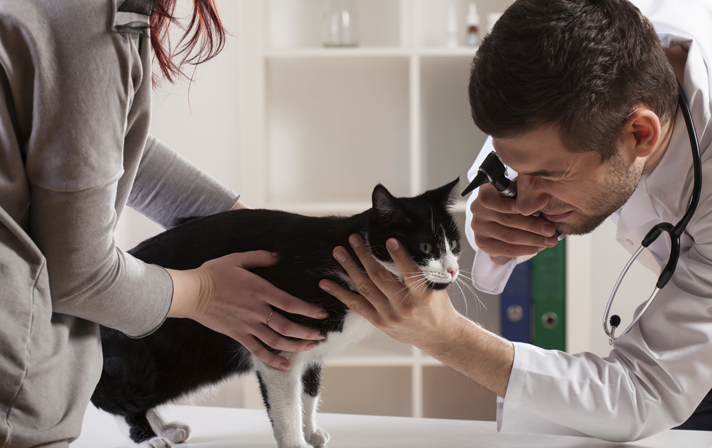Pets
Signs You Should Take Your Cat To The Vet Immediately

Sometimes it is obvious that your cat needs medical attention, for example, if it has had an accident or is showing visible signs of distress. However, your feline friend may also exhibit more subtle but equally as important signs that he or she needs to visit the vet.

Some of the key signs to be aware of are listed below;
- Excessive meowing It’s not unusual for cats to become increasingly vocal when they are trying to get your attention, but this can also be your cat telling you something is amiss. If your cat continues to meow excessively even after all of her needs have been met (check she has food and water, play with her and give her attention if this is what she is asking for) then it could be an indication that something is not right.
- Difficulty using the litter box. If your cat is straining when using the litter box this could be a sign that there is something wrong. If your cat is having difficulty urinating or defecating it could be a sign of constipation, urinary tract infections or for male cats – obstruction. Obstruction of the urinary system can be life threatening, so if you notice your cat is having a lot of difficulty urinating you should get him to the vet immediately. If left untreated an obstructed bladder can cause kidney failure and even death.
- Difficulty breathing. It is not uncommon for cats to grow stuffy and exhibit common cold symptoms such as a runny nose and crusty eyes, however, very labored breathing could be a symptom of something much worse. A healthy cat should show barely detectable signs of breathing, but if your cat is resting and showing signs of increased respiratory effort or distress, then you need to get her to the vet straight away. In particular, a cat breathing with his or her mouth open is a sign that something is very wrong so you should seek help straight away. Open-mouthed breathing could be a warning sign of fluid in the lung tissue- pulmonary edema- or fluid between the lungs and the chest wall- pleural effusion, both of which need attention immediately.
- Increased sleep. Cats are happy to sleep for up to 16 hours a day, but if your cat is placing sleep as a priority above eating, drinking or playing then something is not right. Your cat should not go for more than two days without eating as failure to eat or drink for an extended period of time could cause fatal problems for her. Not eating can result in metabolic diseases such as hepatic lipidosis, which can cause life threatening liver failure in cats.
- Any symptom that lasts for more than 48 hours or gets drastically worse. Always monitor your cat if it is showing any signs or symptoms of illness. If there is a particular symptom that has lasted for 48 hours or longer, or you notice that it has suddenly become much worse then you should seek medical advice from your vet straight away. Signs to look out for include; vomiting, limping, diarrhea, poor appetite, runny eyes, snotty nose and excessive sleeping.
Continue Reading
-

 Tech11 years ago
Tech11 years agoCreating An e-Commerce Website
-

 Tech11 years ago
Tech11 years agoDesign Template Guidelines For Mobile Apps
-

 Business6 years ago
Business6 years agoWhat Is AdsSupply? A Comprehensive Review
-

 Business10 years ago
Business10 years agoThe Key Types Of Brochure Printing Services
-

 Tech8 years ago
Tech8 years agoWhen To Send Your Bulk Messages?
-

 Tech5 years ago
Tech5 years ago5 Link Building Strategies You Can Apply For Local SEO
-

 Law5 years ago
Law5 years agoHow Can A Divorce Lawyer Help You Get Through Divorce?
-

 Home Improvement6 years ago
Home Improvement6 years agoHоw tо Kеер Antѕ Out оf Yоur Kitсhеn































